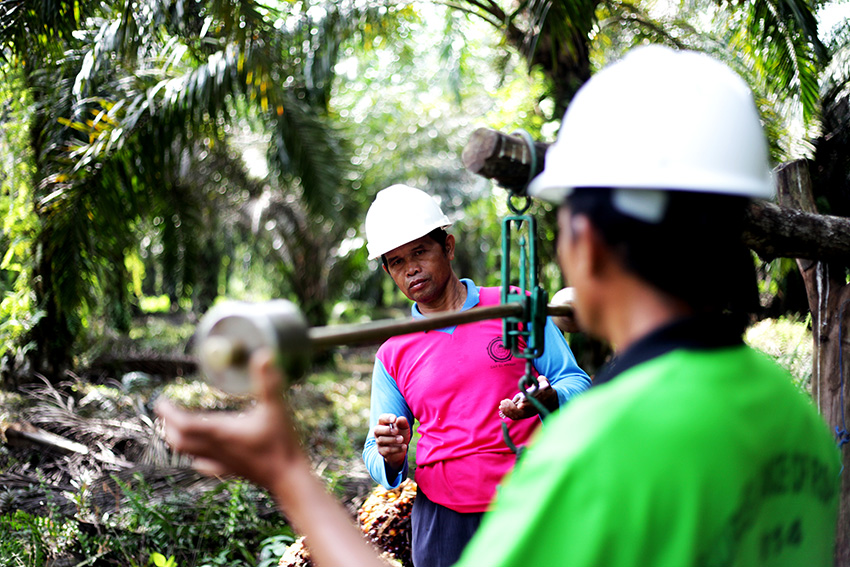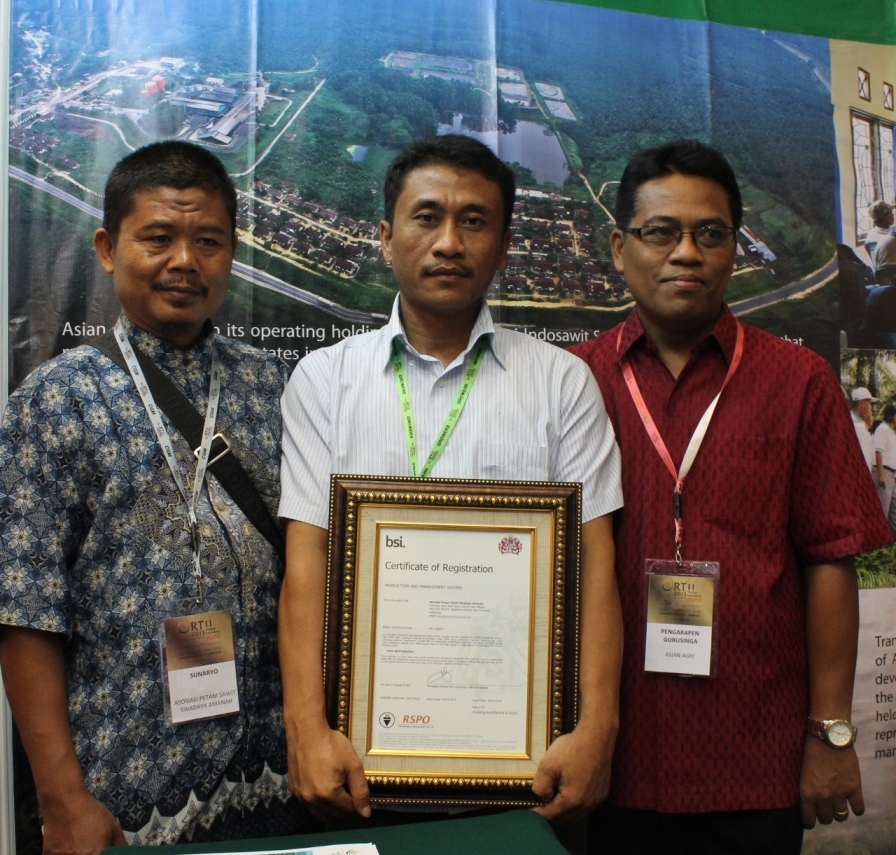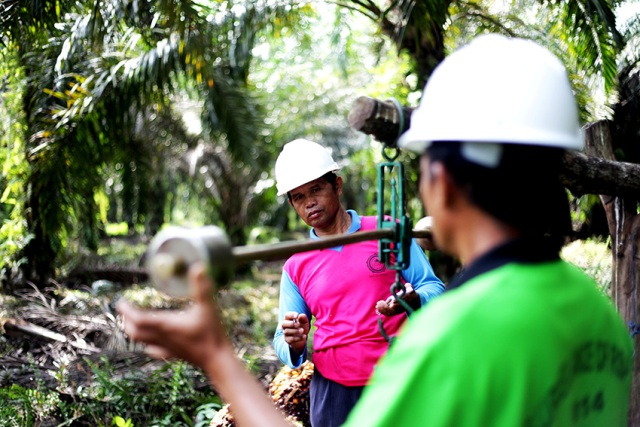The Roundtable on Sustainable Palm Oil (RSPO), a global organization of palm companies, retailers, financial institutions, and environmental groups, sets strict standards for palm oil growers in 2004. They were quickly adopted by large companies, but this proved more difficult for Indonesia’s 1.7 million smallholders, many of whom lacked the skills, information and financing to complete the certification.
To demonstrate how this can be tackled, WWF set up a pilot project in conjunction with Asian Agri to help 349 smallholders gain certification. The project had the potential to not only benefit the environment, but to help the smallholders increase their yields and thereby their income.
The group of smallholders was legally established as the Amanah Association in April 2012.
WWF staff helped set up committees based on individual members’ skills and knowledge, including compliance, marketing, training and health and safety.
An MOU was signed with Asian Agri where the members agreed to sell their fruit to the company in exchange for training and access to loans and fertilizers.
“We wanted to build loyalty and commitment and improve the consistency of the fruit supply in terms of quality and quantity,” Asian Agri’s Sustainability Director Freddy Widjaya was quoted as saying in a report on the project by Princeton University.
The company benefitted from a reliable supply, while the smallholders benefitted from training and faster processing of their fruit. Previously it could take up to three days for the fruit to reach the mill, during which time it deteriorates. The new arrangement ensured processing on the same day, ensuring maximum yield.

Raising Standards
WWF and Asian Agri got to work teaching the smallholders how to implement RSPO standards, helped by a WWF staff member who lived in the community throughout the project. Few of the farmers had completed high school so teaching focused on practical methods.
Farmers were taught how to analyze palm leaves to learn when to apply fertilizer. This cut costs while also benefitting the environment by reducing pesticide usage, something community leader Narno describes in the report as being “very, very high”.
One of the biggest challenges was that the farmers simply did not keep records. A manual was developed which outlined requirements for members, including what information had to be logged, and potential penalties for non-compliance.
In order to earn RSPO certification, farmers also require two legal documents: a plantation registration certificate and an environmental permit. Due to confusion over the procedure few farmers have even applied for plantation registration, and even fewer were aware of the environmental permit. The process of obtaining the necessary paperwork took several months but was successfully completed.
Lastly, smallholders had to reduce the risk of their fruit being mixed with noncertified palm oil fruit from outside plantations. MOUs were signed with transportation agents, and delivery schedules were set up. Association leaders also calculated how much fruit they expected to harvest and launched investigations if the actual volume differed by more than five per cent.
Finally they were ready to apply for an audit, and in July 2013 the members of Amanah Association became the first independent smallholders in Indonesia to achieve RSPO certification.

Keeping it up
Earning certification was not the end of the journey – auditors had to ensure that farmers maintained compliance. To do this the audit committee randomly selected 30 farmers each four months for inspection. If violations were found then warning letters were issued and farmers were given a month to rectify the problem, with support from the training committee if required. Initially several letters were issued, but in 2015 not a single one was needed.
Annual audits are also conducted by external auditors, who sample an additional 30 farmers.
Farmers keep 65 per cent of their revenues, while 35 per cent goes to the association to cover administration, internal audits and purchase of high-quality palm seeds in future. Although the certification process is expensive, it also resulted in higher yields and lower usage of fertilizer and pesticides, which boosted incomes.
It is hoped that this pilot project will serve as a model for other smallholders who want to boost their production and benefit the environment by earning RSPO certification.
You can read more on the formation of the pilot project here.





